How do I iterate over the map of interfaces below to get the values of the interface returned in the map?
I have read through the extensive list of questions regarding iteration in Go but they didn't help me.
// https://api.kraken.com/0/public/AssetPairs
pairsResult, err := api.Query("AssetPairs", map[string]string{
})
if err != nil {
log.Fatal(err)
}
ks := reflect.ValueOf(pairsResult).MapKeys()
fmt.Printf(" %+v ", pairsResult) // result A below
fmt.Printf(" %+v ", ks) // result B below
// the value here is the value of MapKeys, which is the key
for kix, key := range ks {
fmt.Printf(" %+v %+v \n ", kix, key) // result C below
}
Result A
map[AAVEETH:map[aclass_base:currency aclass_quote:currency altname:AAVEETH base:AAVE fee_volume_currency:ZUSD fees:[[0 0.26] [50000 0.24] [100000 0.22] [250000 0.2] [500000 0.18]...
Result B
[KEEPXBT LINKUSD LINKXBT NANOEUR ...]
Result C
0 KEEPXBT 1 LINKUSD 2 LINKXBT 3 NANOEUR 4 USDTAUD ...
This is the source of the API wrapper function that is being called above
// Query sends a query to Kraken api for given method and parameters
func (api *KrakenAPI) Query(method string, data map[string]string) (interface{}, error) {
values := url.Values{}
for key, value := range data {
values.Set(key, value)
}
// Check if method is public or private
if isStringInSlice(method, publicMethods) {
return api.queryPublic(method, values, nil)
} else if isStringInSlice(method, privateMethods) {
return api.queryPrivate(method, values, nil)
}
return nil, fmt.Errorf("Method '%s' is not valid", method)
}
This happens when I try to iterate over the value:
This happens when I try to iterate over the initial result:

